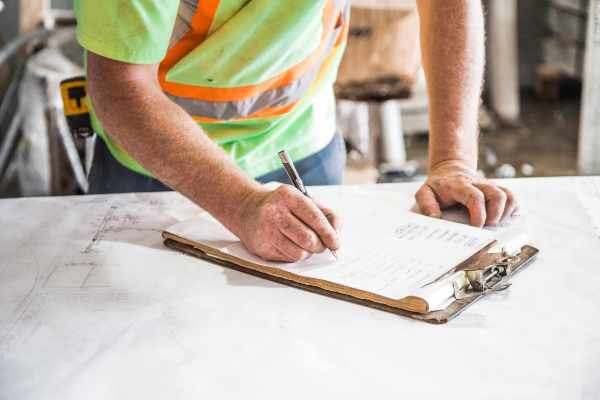A home inspection is a comprehensive assessment of a house. It is a crucial step for anyone considering purchasing a new home in Louisville. You might be wondering whether to pay this extra expense after already spending a large sum on the house. Let me walk you through this home inspection checklist that covers all the key elements.

Other than a home inspection, federal law doesn’t make a termite inspection process mandatory when buying a home. But there are a few states that require a termite inspection. Without this, it may be difficult for you to get a loan to buy a home.
If you are purchasing a home through a mortgage lender, the lending institution might require a termite clearance certificate to process your loan application. If there is any structural damage due to termite infestation, the lending company will require the structural damage to be repaired. And also have the property to be treated by a licensed termite control company.
House Inspection: What Does It Mean?
The first step in the home inspection checklist is understanding what the home inspection will cover. A home inspection involves hiring specialized agencies or certified individuals to conduct a thorough, non-invasive assessment of a property’s present condition, complete with all of its structural and mechanical issues. This is usually performed before purchase. It highlights any major flaws, safety concerns, non-functionality, etc.
What exactly does an inspection entail?
A professional inspector will look at key aspects of a home and then write a report detailing their findings. The inspection can disclose more troubling facts about a property, saving a customer money and annoyance in the long run.
Home Inspection Checklist Areas
Below are some of the common inspections:
- Foundation and Exterior Walls: The inspector will look for damaged or missing siding, crevasses, and whether the soil is too close to the bottom of the house, which might draw wood-destroying insects. You can hire a pest inspector to further inspect your house for damage caused by pests like termites, rodents, wood boring beetles, etc.
- Grading: If the grade slopes away from the house as it should, the inspector will inform you. If it doesn’t, water may leak into the home and cause damage, necessitating either a change in the yard’s slope or the installation of a drainage system.
- Electrical: This determines the type of wiring in the home, tests all the outlets, and ensures the functional ground fault circuit interrupters. They will also inspect electrical panels and electrical outlets to verify they are not a fire hazard.
- Garage or Carport: This includes verifying the garage door for appropriate opening and shutting, examining any visible garage framework, and deciding if it is open to the air.
- Plumbing: Many a times plumbing problems can lead to pest problems. The home inspector will inspect all faucets and showers for leaks, test the water pressure, replace outdated pipes, and find the house’s main water shutoff valve.
- Fire Protection: If the house has a connected garage, the inspector will check to see if the wall has the appropriate fire certification. This means the inspector will also check the fire protection status to make sure it hasn’t been damaged.
- HVAC: This examination assesses the age of the furnace and air conditioner and if they perform correctly. They might identify whether repairs or maintenance are necessary.
- Water Heater: This inspection will determine the heater’s age and whether it is properly fitted and protected.
- Kitchen Appliances: This involves checking kitchen appliances that come with the home to ensure they operate.
- Laundry Room: This inspection ensures that the laundry area gets ventilated appropriately. A poorly maintained washer system might provide a significant fire risk.
- Bathrooms: The home inspector will look for visible leaks, adequate ventilation, and other issues. Mold and mildew can grow in a bathroom without a window or a ventilation fan. Moisture can also distort wood cabinets over time.
Advanced Home Inspection Requirements
Some assessments are not all-inclusive so, some houses may require a specialized inspection. You may want to consider the following options, depending on where you live.
- EIFS – Exterior Insulation and Finish Systems (EIFS) is a non-load-bearing building cladding system that provides an insulated, water-resistant, finished surface on exterior walls using an integrated composite material system.
- Termites – In areas where termites are quite common termite home inspection is necessary. These infestation reports are required in many countries before signing a purchase.
- Mold – Mould inspection is the process of determining the extent of mold growth in a structure. An inquiry, a visual inspection, and mold testing are frequently included.
- Radon – Radon is a harmful radioactive gas that sneaks into homes through foundation cracks and around electrical outlets and pipes. Staying safe requires proper radon inspection.
- Roof certification – You should at least get an estimate of how long it will be before the roof needs to be replaced. The report entails the quality of materials, soundness of drains, etc.
- Sewer – If you are buying a place where someone has lived before for a long time, you should have a sewer check performed. Several plumbing firms have contractors accessible to inspect the sewage using a camera to check for obstructions and general sewer conditions.
What questions should you ask a home inspector?
The inspection usually lasts two to three hours. You should be present to hear a direct explanation of the inspector’s findings and, if required, ask questions such as:
- How do you conduct your inspections?
- What is the cost of the inspection?
- How much does the home inspection cost?
- What will be the scope of the inspection?
- What is the earliest I could schedule an inspection?
- Is it an issue if I attend the inspection, and how long will it take?
- How quickly will a report be issued?
- What is the name of the inspector and what is their area of expertise?
A home inspection is a simple option to get a professional, third-party analysis of the quality of the house you’re about to purchase. Also, make sure to consider pest inspection before buying a house, it will take some time and money, but you’ll be glad you did it in the long term.
We hope you have learned a lot from this home inspection checklist and what it means for your home purchase.



